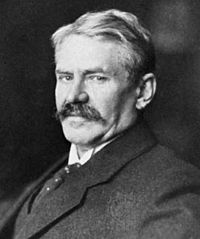
Finally I have been able to catch up with the answer to one particular small question that arose for me when I first read Daniel Gullotta’s review of Richard Carrier’s On the Historicity of Jesus. In the first pages of his review Gullotta directs readers to numerous works that are said to offer a detailed history of mythicism or a detailed list of serious engagements with past mythicist ideas. For example, on page one he writes:
For an in-depth review of mythicism up until Arthur Drews, see
Shirley Jackson Case, ‘The Historicity of Jesus: An Estimate of a Negative Argument’, The American Journal of Theology 15.1 (1911), pp. 20–42;
Maurice Goguel, ‘Recent French Discussion of the Historical Existence of Jesus Christ’, Harvard Theological Review 19.2 (1926), pp. 115–142;
Walter P. Weaver, The Historical Jesus in the Twentieth Century: 1900–1950 (Harrisburg: Trinity Press International, 1999), pp. 45–71;
B.A. Gerrish, The Old Protestantism and the New: Essays on Reformation Heritage (London: T&T Clark, 2004), pp. 230–247.
(Gullotta, p. 311 – my layout)
The first three works I was somewhat familiar with (and I might have reason to question their portrayal as “in-depth reviews of mythicism up until Arthur Drews” although I can understand why Gullotta thought they might be) but the fourth, the one by Gerrish, was new to me. Only in recent days have I been able to read it.
Here is the full extent of the “in-depth review of mythicism up until Arthur Drews” given by Gerrish:
The problem of the historical Jesus was scarcely a new one. It had been one of the persistent motifs of nineteenth-century German theology, thanks largely to D. F. Strauss and his critique of Schleiermacher’s christology, and in the work of Bruno Bauer it had already issued in doubt whether Jesus ever existed. But it can hardly be claimed that Bauer had greatly shaken the world of German Protestantism. Towards the end of the century, shortly after the death of Albrecht Ritschl, a new phase of the discussion had begun, for which the year 1892 may stand as a convenient marker since it witnessed publication of the notable studies by Kaehler and Weiss. However, renewed discussion had remained the relatively genteel preserve of professional historians and theologians. Arthur Drews’s book, by contrast, became a cause célèbre because he enlisted historical skepticism into a vigorous public campaign on behalf of a post-Christian religious philosophy, which called for abandonment of faith in Jesus.
(Gerrish, pp. 230f)
That’s it. The remainder of the chapter is an in-depth critical review of how one particular theologian addressed the ways in which belief that Jesus had a historical existence was necessary for the faith of the Christian. It is not about mythicism, certainly not about the history of mythicism, but entirely about theological debates over whether Christianity was more about meaningful symbols, community interactions, than it was about the existence of a historical Jesus. Such debates arose in response to the possibility raised by Arthur Drews of even considering the question: How important is it for Christianity that Jesus did exist?
As I read the chapter I came to see more clearly how some few Christians today appear to have reconciled their Christian faith with the idea that Jesus was a metaphor, a symbol, an idea, and not historical. See the posts on Thomas Brodie for an example of how a Roman Catholic priest came to believe Jesus had no historical existence yet still finds deep meaning in the Christian faith.
If there’s a lesson to this post it is by no means a new one. It is one I have experienced many, many times over. And the example I have given above is far from being the only instance in Gullotta’s review. The lesson is: never blindly trust footnotes even in the most scholarly-looking articles, especially in the field of biblical studies at any rate. Always check them for yourself before running with the claim that they say or are what the author has written about them.
Gerrish, B. A. 2004. “Jesus , Myth, and History: Troeltsch’s Stand in the ‘Christ-Myth’ Debate.” In The Old Protestantism and the New: Essays on the Reformation Heritage, 230–47. London; New York: T & T Clark International.
Gullotta, Daniel N. 2017. “On Richard Carrier’s Doubts.” Journal for the Study of the Historical Jesus 15 (2–3): 310–46. https://doi.org/10.1163/17455197-01502009.
